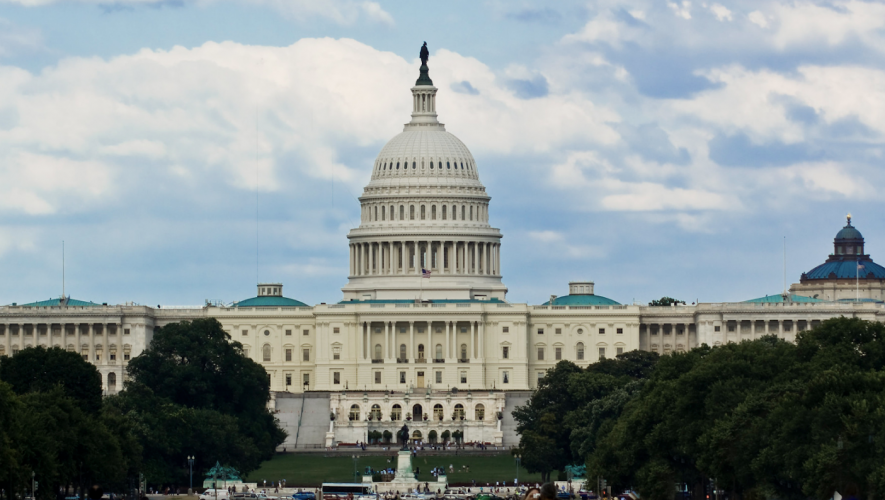If it feels like the 2020 presidential race has dragged on for several years already, that’s because it has. Representative John Delaney broke the record for the earliest candidacy declaration when he announced in July 2017 that he would seek the Democratic nomination. A couple dozen announcements followed throughout the next two years until Michael Bloomberg rounded out the pack in late November 2019.
The Democratic primary has produced endless articles, Saturday Night Live skits, and tweets. And it’s still not over—the last primary elections, postponed due to the coronavirus pandemic, will not be held until August. Senator Bernie Sanders dropped out of the race on April 8, leaving Joe Biden as the presumptive nominee, but the Democratic National Convention, where the nominee will be selected, has also been postponed until August.
The 2020 presidential race is at the forefront of many people’s minds for good reason—Democrats have been hoping for a candidate who can beat Donald Trump. A majority of Democratic voters care more about beating Trump than any other issue.
Getting Trump out of office is key for promoting a progressive agenda that focuses on fighting climate change, expanding health care, regulating guns, and a number of other policies that Democrats care about. But the presidential race is not the only important election on the ballot. Even if Trump is defeated, none of those issues can be addressed unless Democrats take control of the Senate.
The Senate is currently led by Mitch McConnell (R-KY), a man who calls himself the Grim Reaper of legislation. In a 2010 interview, McConnell declared, “the single most important thing we want to achieve is for President Obama to be a one-term president.” The GOP failed, but McConnell maintains a sense of pride about his ability to limit Obama’s success. Most notable was his refusal to hold a confirmation hearing for Supreme Court nominee Merrick Garland, leaving the seat vacant for over a year and allowing Trump to fill it with Neil Gorsuch.
McConnell’s tactics have carried into Trump’s presidency, mostly through blocking legislation passed by the House of Representatives, which the Democrats won after the 2018 midterms. As of February 2020, there were 395 House bills sitting on McConnell’s desk. Despite Trump’s very clever nickname for the “Do Nothing Dems,” the lack of legislation coming out of Congress can be partly blamed on McConnell’s refusal to bring bills to the Senate floor.
As important as the presidential election is, it may result in more gridlocked legislation if Republicans maintain control of the Senate. The Republican majority is unlikely to pass any of the Democrats’ legislation. With a divided government, a Democratic president would need to rely heavily on executive orders—a move for which President Obama was criticized, even though he used executive orders less frequently than any president since the nineteenth century. If the Democratic Party wants even the slimmest possible chances of passing the progressive agenda that its presidential candidates touted, they must maintain their House majority and flip the Senate.
Republicans hold a three-seat Senate majority. Thirty-five seats—twelve Democratic and twenty-three Republican—are up for election. Assuming that the Democrats keep the House and win the presidency (and thus have the vice president to break ties), they need to protect all of their seats and flip three seats blue to control the executive and legislative branches. Most of the Republican seats are safe strongholds, and the Senate’s structure—which gives small, Republican states an advantage—means that Democrats will have a difficult time retaking the chamber for the foreseeable future. However, there are a handful of close races this cycle that will play a key role.
Alabama
Despite being a deeply Southern state where Trump is sitting at +28 net approval, one of Alabama’s Senate seats is held by a Democrat. Doug Jones won by 1.5 points in a 2017 special election, becoming the first Democratic senator in Alabama since 1997. The circumstances of the election were unique—Republican candidate Roy Moore was accused of making sexual advances towards teenagers and of touching a fourteen-year-old girl without her consent when he was in his thirties.
While Alabama voters were unwilling to elect an accused pedophile, Jones faces an incredibly difficult race without Moore in the running. Polls showed Republican candidates Jeff Sessions (former attorney general) and Tommy Tuberville (former Auburn University football coach) each leading Jones by at least eight points. If Jones loses his seat, Democrats will need to pick up an additional win elsewhere in order to claim a majority.
Maine
Susan Collins (R) is the least popular member of the Senate—at 52 percent disapproval, she’s even less popular than McConnell. She is often classified as a moderate Republican. Though Collins votes with Trump less than any other Republican senator, she still has voted with Trump about 68 percent of the time. In 2014, she won re-election with two-thirds of the vote, indicating that Mainers were satisfied with her work. However, her vote to confirm Supreme Court Justice Brett Kavanaugh may have hurt her re-election bid.
Collins was one of nine Republicans who did not sign a Senate resolution opposing the impeachment inquiry, and she and Utah Senator Mitt Romney were the only Republicans to vote for witnesses in the Senate trial. Though she was considered on the fence, Collins voted to acquit Trump on both impeachment charges. Thirty-seven percent of Mainers were “disappointed” with Collins’ actions during the trial, which could indicate that anti-Collins sentiment has strengthened among those who already disliked her. Recent polls have shown that her approval rating has dropped five points since the fall, and her Democratic opponent raised nearly $5 million more than Collins in the first quarter of 2020. Democrats view Maine as one of the most flippable seats in 2020.
Georgia
This Senate election is unique in that both seats are on the ballot. Senator David Perdue (R) is reaching the end of his first term and is up for normal re-election. The other Senate seat will be decided on the same day in a special election. Kelly Loeffler (R) was appointed by Governor Brian Kemp following the resignation of Johnny Isakson (R) at the end of 2019. Loeffler will need to win the special election to keep her seat, but her victory is looking unlikely.
Republican Doug Collins, the representative of Georgia’s ninth district and Trump’s preferred candidate to fill Isakson’s seat, is challenging Loeffler. In a December poll, Collins beat Loeffler by forty points, but more recent polling did not put them in a head-to-head matchup. The election will not include a primary, meaning that all of the candidates will be on the ballot in November. If no candidate wins a majority, a run-off election will be held in January.
Republican infighting may be an advantage for Democratic challenger Matt Lieberman, but unless Lieberman can win a majority of the vote in November, he will have to go up against the prevailing Republican in the run-off. If Matt Lieberman flips Georgia blue, it could be a solid indicator of Democratic prospects across the country.
In 2018, Stacey Abrams showed that Georgia is capable of turning blue—she lost the governor’s race by only 1.4 points, and may have won if not for significant voter suppression in low-income communities and communities of color. While the seat is a long shot for Democrats, it is not entirely out of the question.
Democrats’ Chances
Democrats need to focus their energy on the key races that could make or break a Senate majority. Only four Republican seats—Arizona, Colorado, Maine, and North Carolina—are classified by the Cook Political Report as toss-ups. If Democrats win the presidency, they can take full control of two branches of government by flipping three Senate seats and protecting vulnerable Democrats in Alabama and Michigan (where Republican donors are targeting incumbent Gary Peters).
This will require effort from elected officials and voters. The 2020 election is projected to break record turnout numbers—in the past, record-setting turnout resulted in Demcoratic presidential victories. Turnout will be just as vital to securing the Senate.
Down-ballot races typically aren’t as exciting as the presidential election. America’s low election turnout is even lower in midterm years when there is no presidential race. A 2014 survey found that only 23 percent of respondents could name one of their senators.
Without control of Congress, a Democratic president can’t pass the legislation they promise in the primary. Bills will waste away on Mitch McConnell’s desk, and the chances of him blocking appointments are high. Democrats will find themselves gridlocked on nearly every issue. And there is only so much legislating that a president can do through executive order.
There is no denying that the presidential race is important. The American president is an important figure and sets the example for leadership around the world. Choosing the person who will occupy the White House is a crucial decision for American voters this November. But without the Senate, Democrats will face difficulties passing any significant legislation.
Though national media tends to focus on the presidential election, it is up to voters to educate themselves and others about down-ballot races that will affect their lives. The fate of expanded healthcare, gun reform, and environmental protection—along with a litany of other issues—depends on voters caring about all of their representatives, not just the president.



